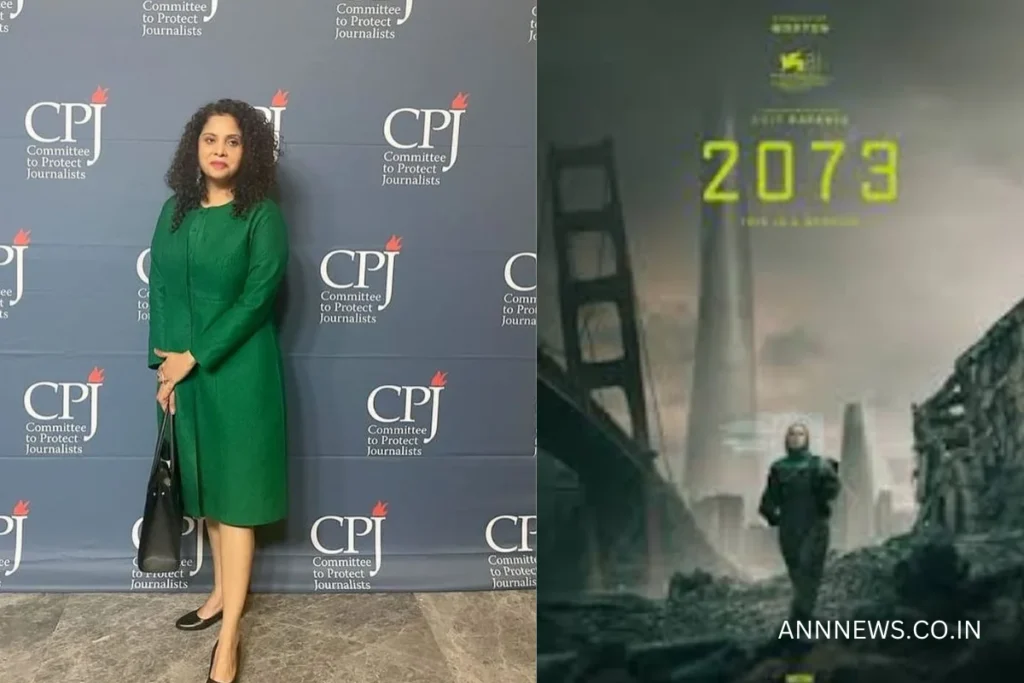
image credit - Instagram/ranaayyub
Asif Kapadia’s 2073 offers a bold and chilling vision of the future. Set in the year 2073, the film imagines a world devastated by rising autocracies, unchecked technology, and environmental collapse. With a blend of fiction, real archival footage, and interviews with leading voices, the film crafts a unique and unsettling narrative.
2073 is an upcoming documentary that depicts a bleak, dystopian future that could very well be our own.
— IGN (@IGN) September 3, 2024
Check out the trailer: pic.twitter.com/O0uT6oR4Tx
At the heart of the documentary lies the testimony of notable figures, including investigative journalist Rana Ayyub. Her voice, along with Nobel Prize-winning journalist Maria Ressa, guides the audience through the events that led to this dark future. Ayyub, known for her fearless reporting, delivers powerful insights into the global rise of autocracies and the growing threat they pose to freedoms worldwide. Her interviews stand out as some of the most gripping moments in the film.
The story unfolds through the character of Ghost, played by Samantha Morton. Ghost, traumatized by the disappearance of her mother, lives in a dystopian world where surveillance controls every aspect of life. The fictional narrative, combined with real footage and interviews, makes for a thought-provoking experience.
MUST READ: Bombay High Court Declines to Direct CBFC on Kangana Ranaut’s ‘Emergency’ Certification
As Kapadia shifts between Ghost’s story and real-world events, the editing keeps the viewer on edge. Archival footage, edited by Chris King and Sylvie Landra, seamlessly integrates with interviews. Despite this, some viewers may struggle to keep up with the rapid pace of the film as it dives into multiple issues like climate change, social media, and the rise of authoritarianism.
Unlike other documentaries that focus on a single issue, 2073 attempts to tackle several global crises at once. The film doesn’t offer much hope, instead showing a world on the brink of collapse. The constant flow of information can overwhelm at times, but the intellectual scope of the film remains impressive.
Rana Ayyub ‘s appearance in the film reinforces the urgency of addressing these interconnected crises. Her voice adds credibility and gravitas, reminding us of the importance of journalism in holding power to account.
In the end, Kapadia’s 2073 may leave viewers feeling unsettled, but that’s the point. The film challenges us to reflect on our choices, from how we vote to how we engage with the world. While it paints a grim future, the message is clear: the time to act is now.



